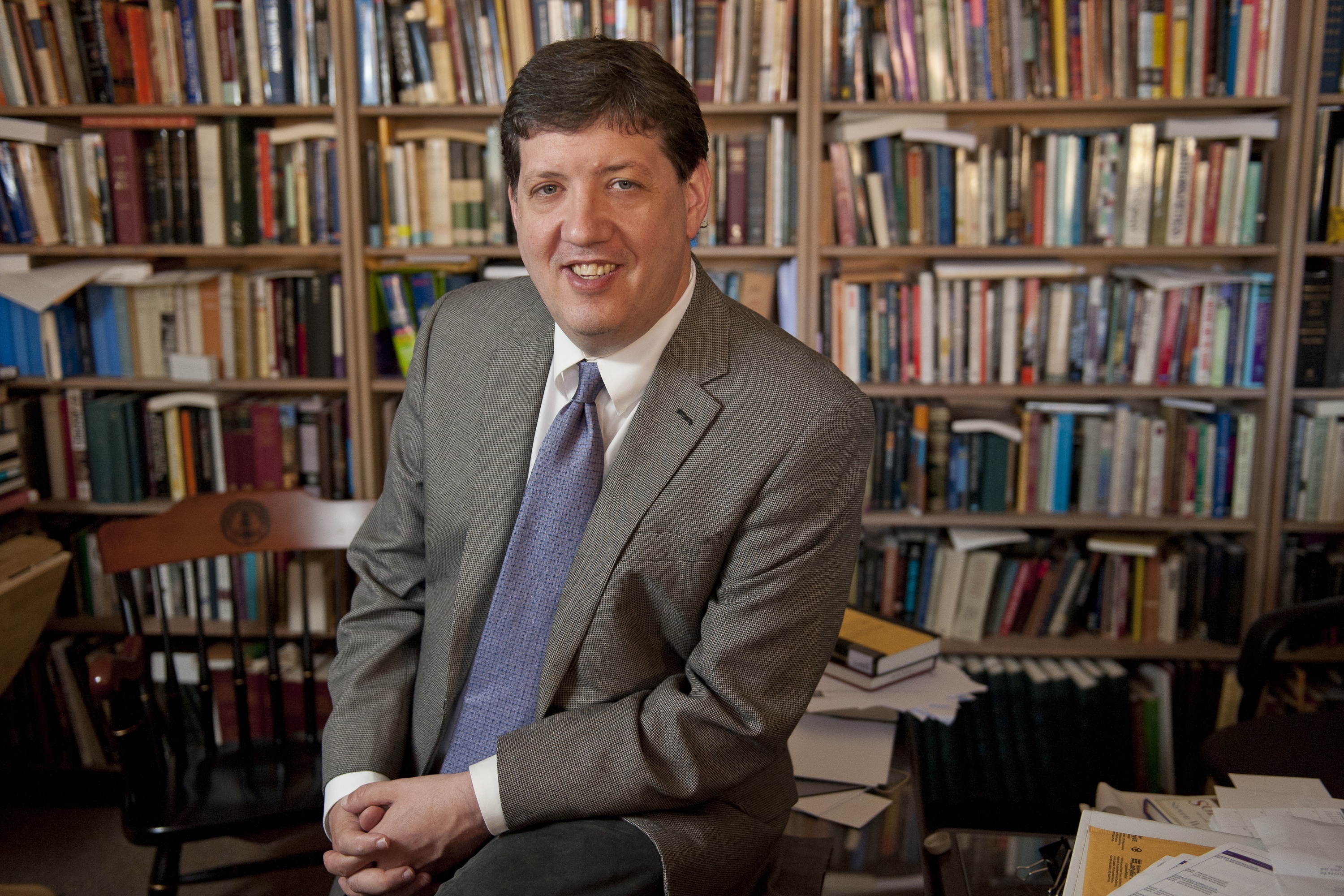 Professor Steven Weitzman
Professor Steven Weitzman Steven Weitzman is the Abraham M. Ellis Professor of Hebrew and Semitic Languages and Literatures and the Ella Darivoff Director of the Katz Center of Advanced Judaic Studies at the University of Pennsylvania. Professor Weitzman received his Ph.D. from Harvard University after completing his B.A. at UC Berkeley and spent several years teaching in the Department of Religious Studies at Indiana University, where he served as director of its Jewish Studies program for six years. Before moving to Penn, he was the Daniel E. Koshland Professor of Jewish Culture and Religion and the director of the Taube Center for Jewish Studies at Stanford University. Professor Weitzman is the author of several books, including Surviving Sacrilege: Cultural Persistence in Jewish Antiquity (Harvard University Press, 2005); Religion and the Self in Antiquity (Indiana University Press, 2005); The Jews: A History (Prentice Hall, 2009); and a biography of King Solomon (Yale University Press, 2011).
The following exchange will focus on Professor Weitzman’s new book, The Origins of the Jews: The Quest for Roots in a Rootless Age (Princeton University Press, 2017).
***
Dear Professor Weitzman,
In the introduction to your book, you mention several problems and suspicions that different groups and individuals might have with the attempt to investigate the origins of the Jews. Our introductory question: who are the ideal readers of this book, and what kind of effect would you like it to have on them? What can they expect to know by the end of the book, and what shouldn’t they expect?
Yours,
Shmuel
***
Dear Shmuel,
The question of how the Jews originated is usually addressed by studying the ancient past, but it is also a question about the present, about who Jews are and how they fit into the world. I approached the question as a scholar of antiquity, but I was conscious in writing the book that the subject has political, religious and personal dimensions that have consequences today. Because there is misinformation, debate and some dangerous ideas surrounding the topic, I thought it would be helpful to take readers on a tour of the research—to introduce them to how modern secular scholars understand the beginning of the Jewish story.
There are many books about the origin of the Jews, but as it turns out, no one had tried to bring all the different kinds of research together into a single account—the historical studies, the archaeology, the genetics and the other methods that have been brought to bear on the subject. At the beginning of the project, I thought the only people who would be interested in such a survey would be fellow researchers, but as the book developed, I realized it was important to make it as accessible as possible beyond academia because scholars are not the only ones interested in the question of where the Jews come from.
Consider the example of genetics research. I see ads for 23andMe, FamilyTree.com and Ancestry.com all the time, direct-to-consumer DNA-testing companies that draw on genetic research to deliver insights into your ancestors and where they come from. A significant part of their customer base are Jews or possible descendants of Jews doing their own personalized research projects into their origins. What is true of genetics research is also true of other fields like genealogical research and even archaeology: there are experts who drive the research, but it isn’t only academics who participate in it or have a stake in its outcome, and the findings have become part of public debates about Jewish identity and Israel’s political legitimacy. This is why I decided that I needed to try to open the research up to anyone with the curiosity and open-mindedness to want to learn how scholars approach this question.
Beyond reporting on the research, however, I also wanted to weigh the arguments against it. Scholars have been seeking to understand the origin of the Jews for centuries, and the story of that effort has a dark underside. Nazi scholarship is the most notorious example. Part of the rationale for the Nazi effort to eliminate the Jews was scientific, a biological theory about their racial origin. This is part of what led the Nazis to support genetics research (the infamous Dr. Mengele was a genetic researcher) and it is one reason why critics of contemporary genetic research are concerned about its use to illumine the ancestry of the Jews. I didn’t see it as a goal to come up with yet another theory about the origin of the Jews—there are plenty of such theories. I wanted to help readers think through the question and assess different approaches, which meant exploring what scholars have learned but also facing up to the perils of such research.
I must acknowledge that the book will probably frustrate some readers, especially those who want a clear-cut answer or want to be reaffirmed in what they already believe. If I was to offer an accurate and comprehensive depiction of the scholarship, I would have to introduce readers to theories and information at odds with how some Jews see themselves and consider some challenging ideas and ways of thinking. I spent a lot of time struggling with how to balance engaging readers with presenting the situation honestly, and what I settled on was trying to make things clear and accessible without watering anything down or papering over the debated and the irresolvable. At the least, I hope the book helps readers understand how some of their ideas about the origin of the Jews originated, gives them a good sense of the many different ways there are to think about questions of ethnic and religious origin, and conveys to them that there is an enduring mystery about who they are that continues to elude even the most cutting-edged research.
Sincerely,
Steve Weitzman























 More news and opinions than at a Shabbat dinner, right in your inbox.
More news and opinions than at a Shabbat dinner, right in your inbox.